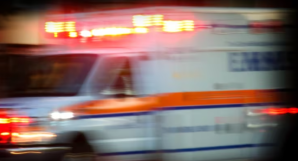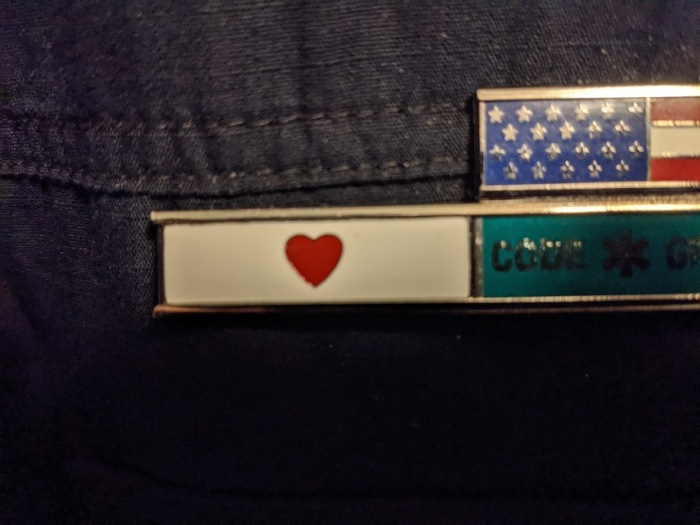
Many of you may have already read the verdicts rendered for Jeremy Cooper and Peter Cichuniec, two Aurora-area Firefighter/Paramedics who were involved in the care and transport of Elijah McClain in 2019 in Aurora, Colorado. The encounter between Mr. Mcclain, Aurora PD, and Aurora FD ultimately resulted in his untimely death. For those unfamiliar with the case, the brief summary is thus:
A suspicious person call resulted in a PD stop of Elijah, who was walking home from a convenience store with the merchandise he purchased. Several Aurora PD officers on-scene attempted to restrain Elijah, ultimately utilizing a carotid choke hold to subdue him to the ground. During this time, EMS was also summoned as he was suspected to be suffering from “excited delirium” – a diagnosis made by PD, not by EMS, as they had not yet arrived on-scene. When AFD arrived on-scene, according to body-cam footage, the FF/Medics were directed by PD to restrain Elijah with Ketamine because of his apparent excited state (it was later determined he was likely hypoxic from the carotid hold, and not because of an underlying drug- or psychosis-related delirium state) and the paramedics, without performing their own physical exam, checking any vital signs, or determining the appropriate course of action, seemed to follow directions from APD, who do not have medical control authority over AFD. The paramedics administered 500mg of Ketamine (likely an inappropriate dose and inappropriate medication to give in the first place), and then placed Elijah in a prone position on the stretcher for transport. No vital signs were assessed and he remained handcuffed and prone for enough of a period of time to cause apnea (stopped breathing) and went into respiratory arrest, ultimately going into cardiac arrest and dying while under EMS care and in APD custody.
This case should give anyone working in EMS chills. I work daily with my law enforcement brothers and sisters, and I have their back, just as I know that they have mine. We have not just an unspoken bond, but we frequently assure each other that we trust each other and know that if the proverbial shit hits the fan, we’ll be coming to assist each other, no questions asked. All of that being said, if I showed up on scene and a deputy asked me to take down a patient with a sedative, no questions asked, I’d have to pause and wonder why. This is not the norm for our system, law enforcement making requests for medical procedures. It’s not the norm in any system I’ve ever worked in. It’s certainly not legal, and it’s not good practice to take medical orders from outside your chain of command or outside of your medical direction. So I have to wonder – WHY did these paramedics arrive on-scene, even if they saw what appeared to be a patient actively fighting with PD and in an acute psychosis state, and proceed to bypass all good practice in medicine and administer a medication without following the five patient rights for medication? This is a list we have drilled into our heads from the very beginning of paramedic school:
- Right Medication
- Right Dose
- Right Route
- Right Time
- Right Patient
If any one of those isn’t “RIGHT” – then you don’t give the medication! If they had stopped to consider if this was the right patient to receive Ketamine, they would not have given it. If they had taken the time to really evaluate their patient and get a good weight estimate, they would have realized that 500mg was much too high a dose, and the closer examination might have afforded them the chance to re-examine their patient for a better outcome, avoiding the need to give Ketamine at all. The time, and route – maybe taking the time to establish an IV and build a rapport with the patient would have also afforded a little more time to evaluate and examine the patient prior to administering the medication. I don’t know. I wasn’t there. I’ve been on plenty of excited delirium calls where IV establishment is not only not practical, but dangerous, so this is not always the correct route of practice, but taking the time to at least consider it affords more time to examine the patient, at least.
Please do not misunderstand me, either. I am not blaming the Ketamine for Elijah’s death. The calculated dose for the patient, as I have read, would have been between 425 and 445mg IM (intramuscular), and I don’t believe that receiving an extra 75mg-55mg of Ketamine is what led to this young man’s demise. The fact that he was likely given the medication rapidly, without any pre-assessment, and without any monitoring afterwards, while he was already in a hypoxic state, and then left in a prone position to suffocate, again, without monitoring of any kind, is what killed him. THAT is the dangerous practice that these paramedics engaged in and are being punished for. The Ketamine makes for a salacious headline, but it’s the poor patient management and lack of compassionate monitoring and evaluation that brought about the respiratory and cardiac arrest that killed Elijah, not the sedative dose he was given.
One of the most disturbing parts of this case is that the paramedics in this case tried to rely on Qualified Immunity to protect themselves from criminal and civil penalties. Qualified Immunity is something I have studied at great length as part of my masters program, and I am confident, without much in-depth insider knowledge of this case, in saying that these paramedics do NOT in any way, shape, or form, deserve to be granted qualified immunity. Essentially, in order to be granted QI, you must act within the bounds of your training, and, using your training, work for the good of your patient to cause no harm. These paramedics not only acted outside the bounds of their department SOGs and COGs, but outside the bounds of basic paramedicine when they ignored the rules of medication administration and then failed to properly care for and monitor their patient after giving the medication. There are a number of articles out there, both in the EMS industry and publicly, suggesting that this verdict may “give public responders pause” as a result of this verdict which seems to go against Qualified Immunity status for these first responders. I do not believe it will. I think that every single day, all across America, thousands upon thousands of first responders answer the call for help in your hometown with respect and due diligence for care and respect, and we do it with pride and with the knowledge that being invited into your home or place of business is a privilege, and one not taken lightly.
Had these paramedics taken the time to properly evaluate and care for their patient with compassion, patience, and diligence owed to every single person we come in contact with, I firmly believe that if there had still been a negative outcome, they would have been easily protected by Qualified Immunity since their intentions for good patient care would have been obvious. It was the rapid, cavalier, reckless manner in which they delivered their patient care and then the utter failure to monitor Elijah after giving him a sedative medication that sealed their fate. Cooper and Cichuniec may have been talented paramedics in their time, but they demonstrated on this call that their lack of compassion and burnout had far surpassed their ability to provide competent, deliberate, accurate care for anyone in their service area, let alone a scared young man in police custody.





 It’s EMS WEEK 2020! It sure doesn’t feel like it, though. Usually as we are approaching this week, we’re talking about crew breakfasts, the EMS week banquet, service recognition events, team-building, and other fun events. Instead, our discussions are focused on things like PPE utilization, COVID alert rates, disease spread, and community fatality rates. Much of the work that ACEP and NAEMT have done in preparing for EMS Week this year has basically been to support all of us in EMS in continuing to do the job that we love so much in the face of such a strange and challenging pandemic, rather than their traditional roles of cheer-leading and boosting morale during this week.
It’s EMS WEEK 2020! It sure doesn’t feel like it, though. Usually as we are approaching this week, we’re talking about crew breakfasts, the EMS week banquet, service recognition events, team-building, and other fun events. Instead, our discussions are focused on things like PPE utilization, COVID alert rates, disease spread, and community fatality rates. Much of the work that ACEP and NAEMT have done in preparing for EMS Week this year has basically been to support all of us in EMS in continuing to do the job that we love so much in the face of such a strange and challenging pandemic, rather than their traditional roles of cheer-leading and boosting morale during this week.  She’s only 20 years old*. 15 years younger than me. Laid out on the ground in front of the house. It’s 40 degrees outside at 1am here in Texas. Her boyfriend woke up and found her not breathing and did CPR on her while waiting for us to show up. The police showed up first and she woke up. They started their investigation before Fire and EMS even made it to the scene, and proudly declared to me that they had discovered heroin and drug paraphernalia inside the house. All around me are public safety employees shouting at this young woman, “what did you take?” and “what are you on?” and “whose drugs are inside the house?”
She’s only 20 years old*. 15 years younger than me. Laid out on the ground in front of the house. It’s 40 degrees outside at 1am here in Texas. Her boyfriend woke up and found her not breathing and did CPR on her while waiting for us to show up. The police showed up first and she woke up. They started their investigation before Fire and EMS even made it to the scene, and proudly declared to me that they had discovered heroin and drug paraphernalia inside the house. All around me are public safety employees shouting at this young woman, “what did you take?” and “what are you on?” and “whose drugs are inside the house?”  I don’t often share much about my personal life through this blog, but I am elated to share with you, my readers, that my wife and I are expecting our first child, a boy, due in January 2018! Admittedly, this is a very happy, hectic, exciting time in our lives, and I can’t help but think back on some of the times that I had the opportunity to share in the beginning of a new life in my EMS career.
I don’t often share much about my personal life through this blog, but I am elated to share with you, my readers, that my wife and I are expecting our first child, a boy, due in January 2018! Admittedly, this is a very happy, hectic, exciting time in our lives, and I can’t help but think back on some of the times that I had the opportunity to share in the beginning of a new life in my EMS career.